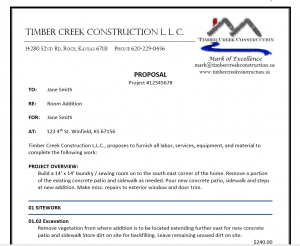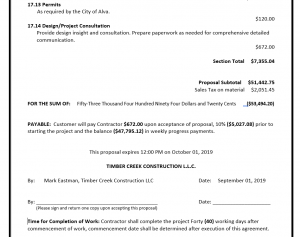By Remembering They Are as Important as You Are

We’ve all been told to ‘love my neighbor as much as I love myself’. This sounds simple enough in theory. The problem comes when attempting to put it into action.
What does it mean to “love my neighbor”?
 In Luke 16:19-31, Jesus talks about the “Rich Man and Lazarus”. In this story the Rich Man dies and goes to Hell and Lazarus dies and goes to Heaven. There’s no indication in the story that the Rich Man was mean to Lazarus. It appears that he was just oblivious, unaware and uncaring.
In Luke 16:19-31, Jesus talks about the “Rich Man and Lazarus”. In this story the Rich Man dies and goes to Hell and Lazarus dies and goes to Heaven. There’s no indication in the story that the Rich Man was mean to Lazarus. It appears that he was just oblivious, unaware and uncaring.
The Rich Man doesn’t appear to have been a bad man…so why did he end up in Hell?
Loving your neighbor begins with loving God. Loving your neighbor as much as yourself is found in Matthew 22:36-40. In this Scripture, before Jesus says anything about your neighbor He says to, “Love God with all your heart, all your soul, and all your mind. This is the first and most important command.” After that He says to, “Love your neighbor as yourself.”
This has to be done in the right order. God first…everything else after.
 So, why did Lazarus make it to Heaven and the Rich Man ended up in Hell? It’s pretty simple really. The Rich Man didn’t believe. You can’t earn your way into Heaven by doing good, Ephesians 2:4-10. You can’t buy your way into Heaven with money, Acts 8:18-21. This doesn’t mean there’s anything wrong with having money or doing good.
So, why did Lazarus make it to Heaven and the Rich Man ended up in Hell? It’s pretty simple really. The Rich Man didn’t believe. You can’t earn your way into Heaven by doing good, Ephesians 2:4-10. You can’t buy your way into Heaven with money, Acts 8:18-21. This doesn’t mean there’s anything wrong with having money or doing good.
You don’t have to be a believer to treat others well, but you do have to be a believer to get to Heaven. If you are a believer, you will treat others well. If you have your priorities in the right order, “Love God with all your heart, all your soul, and all your mind.” Then “Loving your neighbor as yourself” will come naturally. Every one of us is as important to God as the next.

There’s only one way to get to Heaven. You must believe that Jesus is God come to earth, that God raised Jesus from the dead and tell this to others.
If the Rich Man had believed, he would have loved Lazarus and treated him differently. Love God. Love your neighbor. Love yourself. Believe before it’s too late.
Death is the ultimate equalizer.









 Arthur Berry
Arthur Berry



 Cost overruns – You’ve saved and/or borrowed the money you predict you’ll need to do the upcoming construction project. You get an estimate of what it’s going to cost. Sure, it’s more than you expected, but that’s alright it will be worth it in the end, right. Then you get the final bill and it’s a lot more than expected. Now what? Where are you going to find the additional money?
Cost overruns – You’ve saved and/or borrowed the money you predict you’ll need to do the upcoming construction project. You get an estimate of what it’s going to cost. Sure, it’s more than you expected, but that’s alright it will be worth it in the end, right. Then you get the final bill and it’s a lot more than expected. Now what? Where are you going to find the additional money?


 Everyone can be found.
Everyone can be found. Near the end of his life he was doing a show in San Diego but stumbled drunk off stage after only two songs. His friend, country performer Minnie Pearl tried to sober him as they rode around town in the back seat of his Cadillac so he could do his second show. She got him to join her in singing “I Saw the Light” thinking it might help sober him, but after one verse, Hank put his head in his hands and said, “O Minnie, Minnie, I don’t see no light. There ain’t no light.”
Near the end of his life he was doing a show in San Diego but stumbled drunk off stage after only two songs. His friend, country performer Minnie Pearl tried to sober him as they rode around town in the back seat of his Cadillac so he could do his second show. She got him to join her in singing “I Saw the Light” thinking it might help sober him, but after one verse, Hank put his head in his hands and said, “O Minnie, Minnie, I don’t see no light. There ain’t no light.”



 This problem can, and should, be addressed before any actual construction begins. The underlying issue with any disagreement is, different people seeing things differently. A good contractor’s job is to sort through these differences and develop a clear picture of the project scope, design, schedule and price.
This problem can, and should, be addressed before any actual construction begins. The underlying issue with any disagreement is, different people seeing things differently. A good contractor’s job is to sort through these differences and develop a clear picture of the project scope, design, schedule and price. The first four…half of the list, are communication related. Good communication takes time and effort. Time and effort translate into additional cost. Additional cost means your project’s price is higher. Price is important and often leads to choosing a lower bid. Full circle back to the importance of communication. If you are aware of the differences and are presented a clear plan, you can make the best decision for you and your project.
The first four…half of the list, are communication related. Good communication takes time and effort. Time and effort translate into additional cost. Additional cost means your project’s price is higher. Price is important and often leads to choosing a lower bid. Full circle back to the importance of communication. If you are aware of the differences and are presented a clear plan, you can make the best decision for you and your project.



 One boat began falling behind. Not enough fuel. There had been plenty of coal for the trip, but not enough for a race. As the boat dropped back, an enterprising young sailor took some of the ship’s cargo and tossed it into the ovens. When the sailors saw that the supplies burned as well as the coal, they fueled their boat with the material they had been assigned to transport. They ended up winning the race but burned their cargo. Their cargo was gone, and they couldn’t get it back.
One boat began falling behind. Not enough fuel. There had been plenty of coal for the trip, but not enough for a race. As the boat dropped back, an enterprising young sailor took some of the ship’s cargo and tossed it into the ovens. When the sailors saw that the supplies burned as well as the coal, they fueled their boat with the material they had been assigned to transport. They ended up winning the race but burned their cargo. Their cargo was gone, and they couldn’t get it back.
 Time is a commodity that can only be spent. You can’t add to it, only subtract.
Time is a commodity that can only be spent. You can’t add to it, only subtract.
 #2 – They don’t know what they’re doing. They are technicians or trades people trying to run a business. They need to have a business plan in place and use it.
#2 – They don’t know what they’re doing. They are technicians or trades people trying to run a business. They need to have a business plan in place and use it.




 If no one is there when we jump this doesn’t work so well. The more times we’ve jumped, and no one is there to catch us, the more untrusting we become. Faith does not mean we have to see the person catching us, we just need to know that they are there. A relationship needs to be developed prior to the jump. We need to listen to the Catcher’s voice and know that He will catch us.
If no one is there when we jump this doesn’t work so well. The more times we’ve jumped, and no one is there to catch us, the more untrusting we become. Faith does not mean we have to see the person catching us, we just need to know that they are there. A relationship needs to be developed prior to the jump. We need to listen to the Catcher’s voice and know that He will catch us.





